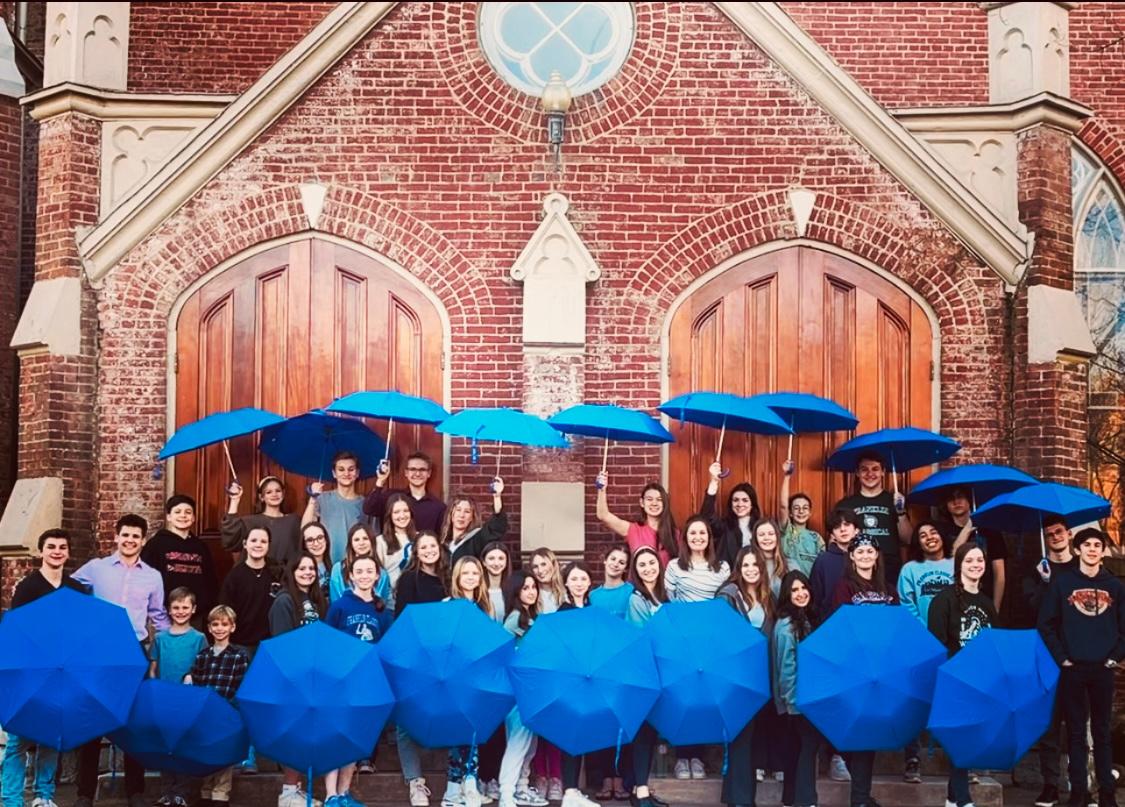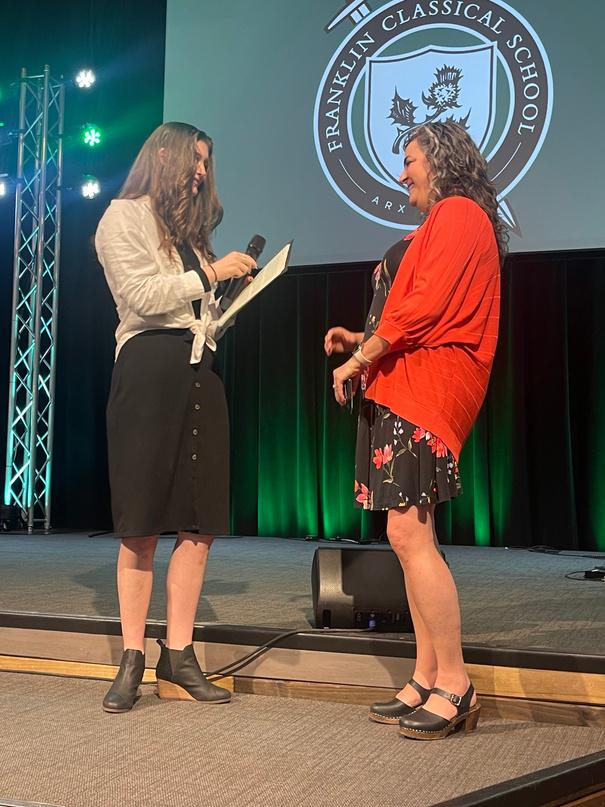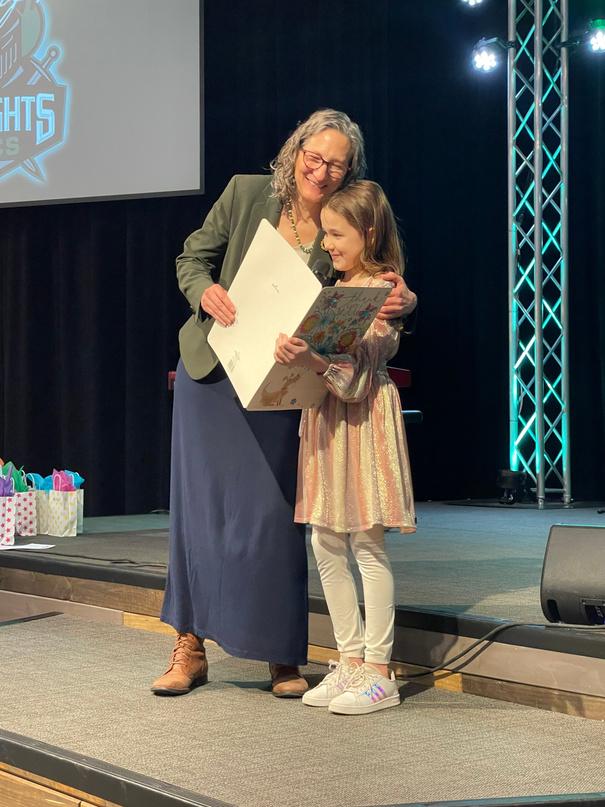Acta Equitum Acta Equitum



March 2–4
FCS Players' Spring Production Singin' in the Rain Williamson County Performing Arts Center
March 7–9
9th–12th Grade 3rd Quarter Project Presentations (Presentation attire required)
March 9
K–5th Grade 3rd Quarter Project Presentations (Presentation attire required)
March 9
6th–8th Grade 3rd Quarter Project Presentations (Presentation attire required)
March 10
K–6th Grade Parent-Teacher Meetings (K–6th grade classes dismissed)
March 12–22
Senior Class Trip to London, Chartwell, and Cambridge
March 13–17
Spring Break classes dismissed; offices closed
March 23
9th–12th Grade Disquisition Day
March 30
Financial Aid Applications Due
Updated
April 1
New family application deadline
April 4
Latin Exam (grades 3 – 12)

April 4
FCS 30th Anniversary Celebration
The Barn at Sycamore Farms
April 7
Good Friday classes dismissed; offices closed
April 14
7th through 12th Grade Academic Advising closed
April 20
Upper Division Spring Formal Homestead Manor
April 20–21
Iowa Testing by registration – grades 3 – 9
April 26
Senior Oral Defense
2:00 pm; Parish Presbyterian Church
FCS classes dismissed at 1:00 pm
April 28
Grammar School Talent Show
March 13 – 17
Spring Break – offices closed
April 7
Good Friday classes dismissed; offices closed
May 20
Class of 2023 Graduation
We have received a number of gifts toward our capital fund from the end of 2022 through early this year. Each dollar helps us move toward our permanent campus home. We currently have $984,853 in this fund. Thank you for giving!
Thursday, March 2 - 7:00 pm
Thursday, March 2 - 7:00 pm
Friday, March 3 - 7:00 pm
Friday, March 3 - 7:00 pm
Saturday, March 4 - 2:00 pm
Saturday, March 4 - 2:00 pm
Saturday, March 4 - 7:00 pm
Saturday, March 4 - 7:00 pm



Your payment of $10 will cover the months of March and April for grades 2–12!
Please send payment via Venmo or pay with cash to Mrs. Hepp.
Thank you!































From catered lunches to sweet student notes to an afternoon treat cart, we are grateful for it all!












Thank you to the Thank you to the PTO and parent PTO and parent volunteers who volunteers who made every day made every day special for the special for the faculty and staff! faculty and staff!






 Megan Benson of Pretty Lovely Teas treated the faculty and staff to a delightful afternoon tea service.
Megan Benson of Pretty Lovely Teas treated the faculty and staff to a delightful afternoon tea service.
March 1
Lucy Lane
March 3
Dylan Alvarado
March 5
Elliana Quintana Monroe
Jett Souza
Case Vrechek
March 7
Xavier Bradley
Benjamin Brittain
Lauren Pace
March 13
Bryce Flatt
March 14
Graham Reeser
March 17
Noah Jones
March 18
Ms. Anna Floit
March 23
Lauren Corning
March 25
Savannah Hagopian
March 26
Cooper Hancock
March 27
Blakey Eberhard
March 29
Palmer Barnes
March 31
Henry Hamann
 by Mr Hal Moyer, 2023
by Mr Hal Moyer, 2023
Poetry has the power to connect us across places, demographics, and great spans of time. The poetic expression of both pain and comfort in the words of others can serve to give voice to our own pain and can pass that comfort on to us.
The word poetry comes from a Greek word that means “I make.” Poetry is the intent to create in verbal form.
William Cullen Bryant was a fireside poet known as the "Anti-Slavery Poet and Philosopher." He shared poetry with family and friends by the fireplace as a recreational act as the day came to a close. He lived from 1794–1878, up to and through the time of the War Between the States. He was a lawyer, journalist, and an advocate against slavery. He worked with powerful ideas.
Bryant lived with his grandfather, a stiff and non-relational man named Snell. His father, Peter, was out of the norm for what was expected in Puritan America. He subscribed to the religious idea of Unitarianism, which teaches that God has only one aspect, whereas Trinitarianism teaches the concept of the triune God––three persons in one.
At age 13, Bryant wrote a poem titled The Embargo. President Jefferson proposed an embargo, and it was the closest the nation came to a succession crisis up until the War Between the States. Bryant's poem was scathing, insisting Jefferson was tearing the country apart. Despite Bryant's young age, this poem was circulated and became quite popular.
Bryant's father wanted to help him with his poetry, so he had him study Greek and Latin. He immersed himself in these systemic languages. He had to think about what he was writing and use the technical excellence he had as a translator to create technically excellent poetry. He translated The Iliad, for example.
He realized that a career as a poet wouldn’t support him, so he went to law school and passed the bar. He joined a legal practice, but throughout the period he felt pulled back to poetry and artistry. He was put on a case that involved corruption, and that was the straw that broke the camel’s back. His friends the Sedgwicks helped him become involved in journalism. He started the U.S. Literary Gazette and ended up being the editor in chief for the New York Evening Post.
We use the word communion to refer to the Lord’s Supper. In his poem Thanatopsis, Bryant used the word to demonstrate a religious experience with nature. It showed that death was all around him. He wasn't alone in his destiny of death. Patriarchs of the ancient world and every person through history has died as well. Even the infant and the gray-haired old man are destined for death, and whoever comes after us will die as well. So, while we thought he was going to nature for comfort, all he saw was death. He used the word so to purpose. We, too, should live in a way that when we die, we go in trust and peace.
If God, man, and nature are all the same, and man is mortal and dies, and nature is born from the big bang and is on a collision course with the end of the universe, then what must we assume about the eternity of God? Transcendentalism leads us to a worldview where nothing is lasting. It leads to hedonism, that we should spend our lives seeking pleasure alone. It could lead to nihilism, the idea that nothing ultimately matters. The ramifications are deep.
The challenge we have today is to go home, put a fire in the fireplace, sit in a nice chair, put our phones up, and read a poem. Let that be your evening. If we did that more, we'd find a profound effect on ourselves We'll be less distracted. We’ll be more intentional with our language. We'll delve into the beauty found in the sub-creation of poetry.
